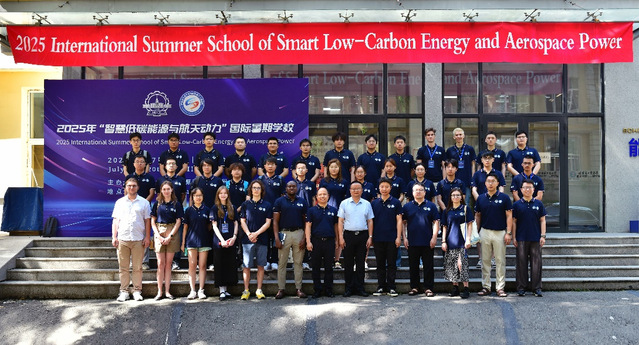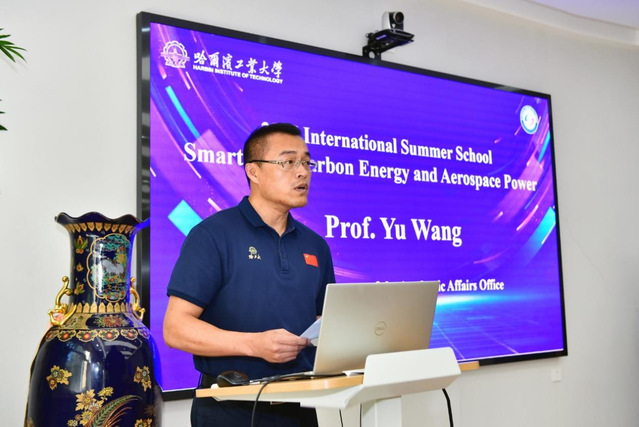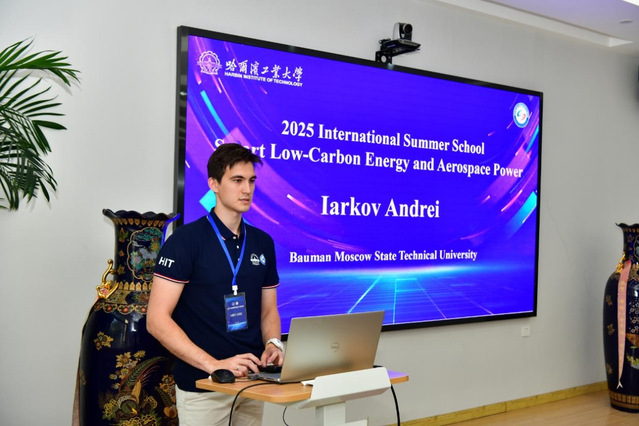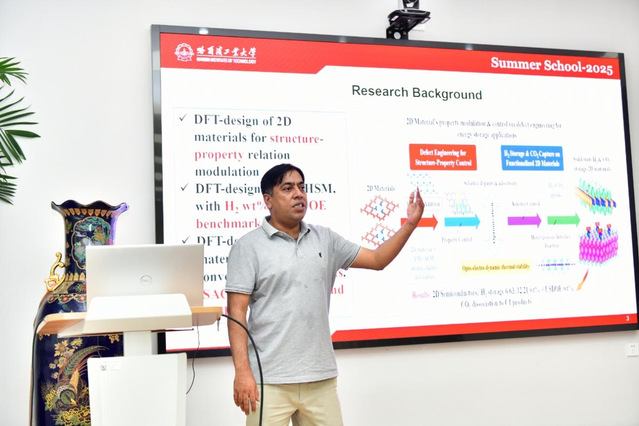The opening ceremony for the 2025 School of Energy Science and Engineering Smart Low-Carbon Energy and Aerospace Power International Summer School was held on July 7th in Room 212, JieNeng Building. Attendees included Wang Yu, Deputy Director of the Undergraduate Academic Affairs Office at Harbin Institute of Technology (HIT); Qi Hong, Vice Dean of the School of Energy Science and Engineering ; Yu Jianyang, Special Assistant to the Dean; Professor Wang Hui; Professor Yue Gu; and others. The ceremony was presided over by Luo Lei, Vice Dean of the School of Energy Science and Engineering.

Group Photo
At the opening ceremony, Professor Wang Yu first introduced the progress of HIT's 2025 International Summer School. He extended earnest wishes for the program, hoping participants would actively engage in discussions, exchanges, and collaborative innovation. He encouraged everyone to boldly explore, gain new knowledge, and make new friends during the activities. Vice Dean Qi Hong and young faculty member Yue Gu delivered opening remarks. Student representative Iarkov Andrei addressed the gathering. Associate Researcher Muhammad Rafique delivered the inaugural lecture of the summer school on the theme of CO₂ Capture, Conversion and Utilization Based on Low-Dimensional Materials.

Wang Yu Delivers Remarks

Student Representative Addresses the Audience

Muhammad Rafique Gives Lecture
This summer school aims to build a communication platform for young students in the energy and power fields. Centered on cutting-edge issues and research hotspots in energy and power, it seeks to help participants understand the current status and development trends of global energy science and technology, grasp international frontiers and major scientific questions in the field, broaden academic horizons, enrich academic experience, enhance student literacy, stimulate innovative thinking, and strengthen innovation capabilities.
Over the two-week program, various formats—including lectures, seminars, project-based learning, and practical sessions—will be used to introduce students with strong quantitative backgrounds (in energy and power, theoretical physics, computer science, and engineering) to emerging fields such as smart energy and advanced power systems. By creating scenarios for collaboration within activities, the school will facilitate in-depth discussions between teachers and students on frontier topics in energy and power, enabling them to learn advanced mathematical methods, modeling techniques, and practical approaches.
The international summer school has invited 9 experts from institutions including the University of Western Australia, Australian National University, University of Seville, Warsaw University of Technology, and the University of Cape Town to deliver lectures.



